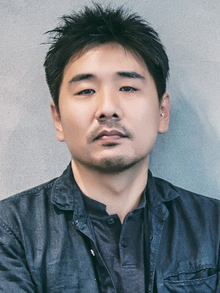Chung Chunghoon is without a doubt the most famous of Korean cinematographers, owing to a long-time collaborator of Park Chanwook who is today mostly active in Hollywood. Born in 1970, he had his first contact with film sets at a young age as he participated as a child actor in a few series between the 1970s and 1980s. In middle school, he and his friends would watch movies together, and during high school, one day when they were feeling bored, they decided to steal from a bo...
More
Chung Chunghoon is without a doubt the most famous of Korean cinematographers, owing to a long-time collaborator of Park Chanwook who is today mostly active in Hollywood. Born in 1970, he had his first contact with film sets at a young age as he participated as a child actor in a few series between the 1970s and 1980s. In middle school, he and his friends would watch movies together, and during high school, one day when they were feeling bored, they decided to steal from a bookstore, and Chung coincidentally ended up with a book on cinema that would accompany him for the next years. Admitted into the department of theatre and film of Dongguk University in 1990, he directed a few short films between 1992 and 1994, but one of his seniors recommended him for the position of cinematographer on <Yuri> (1996), and that’s how he made his official debut in the industry. But it was none other than <Old Boy> (2003), the beginning of his long collaboration with Park Chanwook, that led him to make a name for himself. Many critics abroad singled out the camerawork following Oh Daesu (Choi Minshik) in a four-minute long-take in which the protagonist, armed only with a hammer, fights back a whole group of gangsters in a corridor seen in cross-section. Chung’s photography grew more sophisticated with each of his participation in Park’s work, but he also contributed to Yim Pilsung’s psychological horror <Antarctic Journal> (2004), Ryoo Seungwan’s <The Unjust> (2010), Lee Junik’s <Battlefield Heroes> (2010) and Park Hoonjung’s <New World> (2012).
When Park decided to make his Hollywood debut with <Stoker> (2013), he naturally brought along Chung. This opened the door to more opportunities in Hollywood for Chung, first with Dito Montiel on <Boulevard>, followed by the specialty film favorite <Me and Earl and the Dying Girl> (2015). He then returned to Korea to film Park’s <The Handmaiden> (2016), for which he would win Best Cinematography from the Korean Association of Film Critics. He then increased his reputation in the US when he was attached to the Stephen King adaptation <It> (2017), followed by <Hotel Artemis> (2018) and <Zombieland: Double Tap> (2019). Cult film director Edgar Wright also took note and chose to work with him for <Last Night in Soho> (2021).
In 2022, Chung participated in <Uncharted> and the much-anticipated Disney+ miniseries <Obi-Wan Kenobi>. Having become increasingly busy with his Hollywood projects, he had no choice but to decline Park’s offer to work on his latest film <Decision to Leave>.
Less








